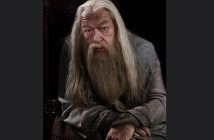Suzanne Collins’ Mockingjay completes the The Hunger Games trilogy, which took the young adult world by storm in both book and film form in the early 2010s when revolutionary dystopia was at its peak. Looking back, it provides an entertaining yet important conclusion to not only its story but the wider concepts of capitalism, rebellion and the perpetuating cycle of revenge.
Saved by the rebellion from her second Hunger Games, Katniss Everdeen (played in the films by Jennifer Lawrence) is transported to District 13, where she must struggle with being the poster child of the rebellion while her maybe-boyfriend Peeta is a hostage for the Capitol. The book effectively balances the dreary and difficult process of overthrowing such an evil power as President Snow with the glimmers of hope from each character we have grown to love, forced into new routines and new levels of danger as it is no longer mere speculation that they want to destroy the Capitol.
Mockingjay hammers home the complexities of rebellions, trusting its young readers to engage in questions surrounding the morality of war and how far revenge can be used as a justifiable motive. Although the book has received criticism for wrapping up the trilogy a little too quickly, it certainly introduces and further explores enough of its own world to be unique against Battle Royale, for which The Hunger Games has been frequently compared to. Suzanne Collins can definitely be commended for her treatment towards corruption, blurring the lines between strictly good and bad while also satisfyingly concluding Katniss’ personal journey as the rebellion’s Mockingjay.




